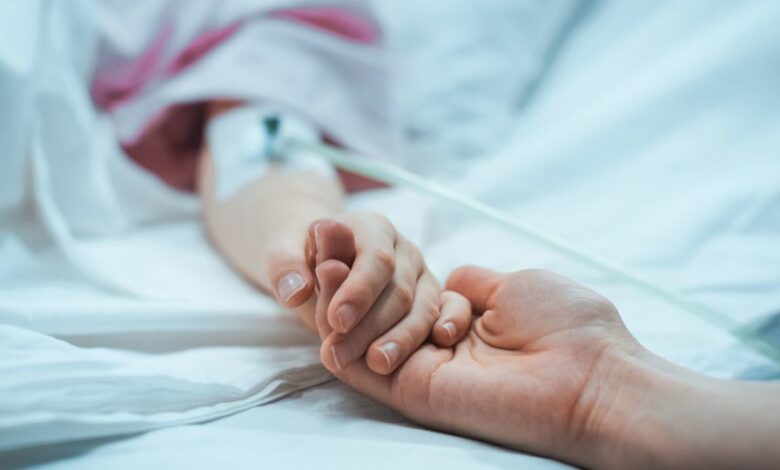
I remember well that in one of my interviews on Egyptian television several years ago, I said that when an Egyptian citizen falls ill they become comparable to someone lost in a dark tunnel, unaware of when and how they will ever find their way out.
Alas, this statement remains true, and it is one verified through medical practice over the course of almost 50 years.
This dire situation has many causes – from a severe deficiency in health culture, a spreading culture of dependence instead of strong religious faith, and the shrinking role of schools.
First, we must understand the meaning of health as stated in the Constitution of the World Health Organization, approved by the International Health Conference held in New York in 1946:
“Health is a state of complete physical, mental and social well-being and not merely the absence of disease or infirmity. The enjoyment of the highest attainable standard of health is one of the fundamental rights of every human being without distinction of race, religion, political belief, economic or social condition.”
Frankly, it is unfortunately evident that many of us have missed this definition.
In practice it becomes clear, when for example:
1) The patient often does not turn to the doctor until a late stage in their disease, after a failed trip among some pharmacists, friends, acquaintances, and former patients! This imposes a huge burden on the treating physician and an even greater burden on the patient, as it is universally agreed that early detection of the disease is the key to survival – especially regarding tumors, diabetes, high blood pressure, etc.
2) Another unfortunate phenomenon I often notice among patients is a lack of knowledge about the nature of the disease they suffer from or the purpose of their prescribed treatment.
I often ask a thyroid patient about the type of disease, and whether her secretions are little or severe? She does not know, even though she has been sick and under treatment for many years!
And here, a fellow doctor can provide the patient with a simplified idea of the nature of their disease and its progress. Every patient must ask their doctor for this.
3) Unfortunately, we still see those who believe in superstitions and avoid doctors.
Even though it is the year 2023, there are those who cling to so-called “prophetic medicine” even while the Holy Quran says: “And We have not sent you but to the whole of mankind, as a herald of glad tidings and a warner.”
The Quran did not say “a doctor” or “an engineer”.
The Prophet (PBUH) would turn to the doctors available at that time, including al-Harith bin Kalada, who was called the “Doctor of the Arabs”, “I am but a mortal man like all of you. It has been revealed unto me that your God is the One and Only God. Hence, whoever looks forward [with hope and awe] to meeting his Sustainer [on Judgment Day], let him do righteous deeds, and let him not ascribe unto anyone or anything a share in the worship due to his Sustainer!”
Unlicensed clinics and hospitals have also increased in almost all governorates, as well as some claiming to be doctors, a problem which must be struck down with the utmost severity.
4) Young doctors must respect every complaint, no matter how simple it may seem, and not rush to a psychiatric conclusion until scientifically confirming there is no physical cause.
And in turn, patients must not downplay their complaints out of fear of being all, as illness is one of the tests of God Almighty, who says: “We have certainly created man into hardship.”
5) Transfer between doctors in different specialties must fall under the guidance of the patient’s primary treating physician, as serious – possibly fatal – complications often occur as a result of the unhealthy interaction between different types of medication, which I have explained before in the article “Beware of treating organs.”
Let’s now move to the most dangerous threat to the safety and health of the Egyptian patient, by which I mean the shortage of doctors and nursing staff.
I and many of my colleagues have warned of this catastrophe.
Unfortunately, no practical action has been taken so far. It should be enough to mention that I and others have noticed a large number of people visiting private clinics within Upper Egypt and the Delta, even despite the presence of medical colleges in every governorate.
I feel regret and sadness for these patients, who endure a lot of hardship and financial costs in search of health services. I often ask them about their reasons, and the answer I get is often: “You don’t know the situation here.”
It is a small answer, but it is very true. It is one that requires a swift reconsideration of the health system away from promises that people are fed up with.
Therefore, I call once more to place this doctor shortage crisis at the top of priorities, especially since the reasons for their migration and travel are known to everyone, and it is not possible to blame the doctors for it.
One strange, baffling phenomena is that some doctors, even after retiring, ask to continue working to fill this shortage of doctors. Instead of welcoming the idea, the Ministry of Health simply delays and hesitates in responding to them!
Discussions about the role the state plays in dealing with patients still continues.
As I’ve stated earlier, only presidential initiatives in this field took responsibility, having addressed the health of women and children, communicable diseases, liver health, eye and ear diseases, the problem of postponed surgical operations, and more – something that cannot be found anywhere else in the world.
The question is: what does the Ministry of Health even do, except to implement initiatives?!
Why, for example, were these surgeries not performed in government hospitals before? And if high costs are the reason, why not demand financial support?
It is the same approach that the ministry has followed for many years, under the pretext of treatment at state expense – treatment that state hospitals are supposed to provide from the state budget! That is, it is a double expenditure of the burdensome budget to deceive the patient and make them feel important.
For the latest commendable presidential initiative titled “100 Healthy Days,” the Ministry of Health spokesperson said that the campaign provided 33,318 services, as part of a presidential initiative for the early detection and treatment of chronic diseases and kidney disease!
It has provided health awareness and education services to about 41,300 citizens through its social media teams.
The Health Minister also announced that the campaign provided services for screening cancerous tumors (prostate, colon, lung, and cervix) by filling out 10,311 information forms!
According to basic medical laws that we have learned and taught to our students, examining a patient has fixed rules that the doctor must not deviate from in order to reach a diagnosis.
Performing some tests, x-rays, etc. is not all there is medical examination or medical care, as is the case with the distinguished “100 Million Healthy Lives Initiative”, which had a clear goal.
I expected and hoped that this latest initiative would be devoted throughout the hundred days to raising health culture in all media outlets and in every governorate, to confirm its importance and ensure it continues.
In summary, for Egyptian patients to not enter the dark tunnel, I call for a revolution led by medical colleges and the Doctors Syndicate, one utilizing the expertise of our expatriate doctors and scientists to reform the health system, address the problems of doctors and the health staff, the efficiency of hospitals, and the provision of medicine and medical preparations alongside modernizing medical education.




